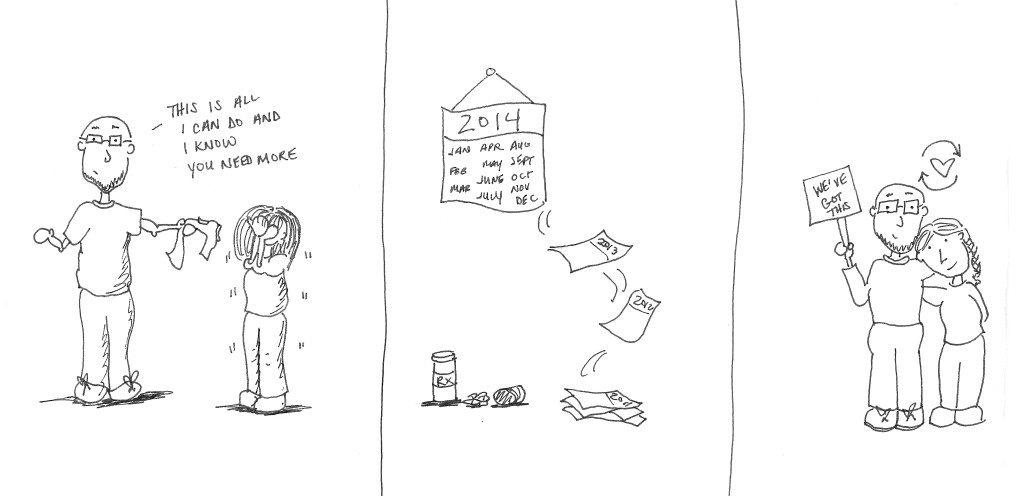by Dan McDowell
It was about four and a half years ago when I realized I couldn’t be enough of a resource for my partner. More often than not, the night ended with her crying in my arms, asking when it would be okay. I knew it was something that could and would happen, but I wasn’t sure how or when. One of these evenings, I was finally able to say aloud to her that I couldn’t help her on my own and my suggestion that she talk to someone finally hit home for her.
The realization that I could not provide the woman I loved with everything she needed was a hard one, but I also knew that this was something I couldn’t help her through on my own. She needed a professional opinion, and I had to realize that that was okay. I wasn’t abandoning my partner, nor was I failing to support her. Instead, it’s like it was snowing out, and all I could give her was a t-shirt instead of the winter coat she would need.
The next four years were filled with numerous therapists, psychologists and diagnoses including major depression, bipolar disorder, and anxiety. Over the last few months the diagnoses have seemed to settle, but the treatment has not.It seems every few weeks my wife faces a changing medication regimen to address side effects or other concerns. With each appointment she struggles not only with tackling her illnesses, but with the impacts of those appointments – feeling as if she is burden due to the weekly copays, the stress of balancing the appointments with two part time jobs and the constant worry that members of her immediate family will somehow find out and begin treating her with kid gloves or push her away all together.

The stigma combined with her own conditions is still a battle she rages against each and every day. And yet, despite this (or perhaps because of it) she is also one of the strongest and most understanding people I know. She manages consistent, ongoing conflicts within her family, is the first to volunteer to listen to someone’s troubles and does whatever she can to alleviate their mental and emotional pains. She’s learned to balance the needs of others with her own needs. She consistently helps those around her while ensuring she takes the necessary time for herself.
We often acknowledge the ability of one partner to assist (or not) the other that is struggling with their mental health. And yet it seems we often forget to stop and recognize that, like all relationships, support flows in both directions. All too often, particularly early in my wife’s and my relationship, I would hear comments about how strong I was for helping her. Or, on the other extreme, that I was coddling my wife from the real world by helping her – whether it was assisting her with seeking a medical withdrawal from courses or missing a class to help her through an episode because in the “real world” I wouldn’t be able to rush home or find resources for her. While that may be true, I never saw a reason to not provide the support I could, especially knowing she would do the same for me.
By sharing our story, we hope that others will realize they are not alone. Through the hard days, medication changes, and the stigma we are fighting so hard to eliminate, we hope you find that this is a battle you don’t need to fight alone. Whether it is support from friends, family, a partner, or a colleague, there is someone that cares and will do whatever they can to help you. We hope that we are able to provide you with some of the strength to tell someone you are struggling, or to listen deeply when someone shares that they are worried about you.
Originally posted at the Student Affairs Collective on February 17, 2015.
